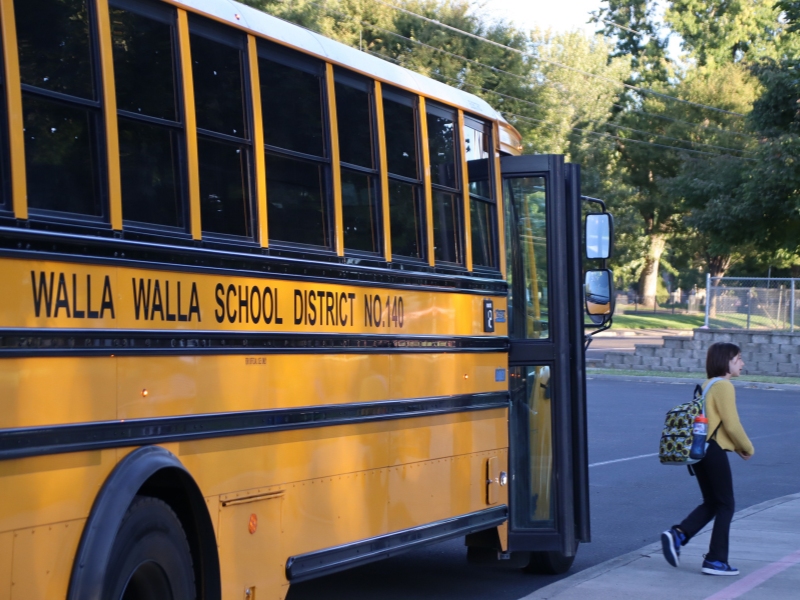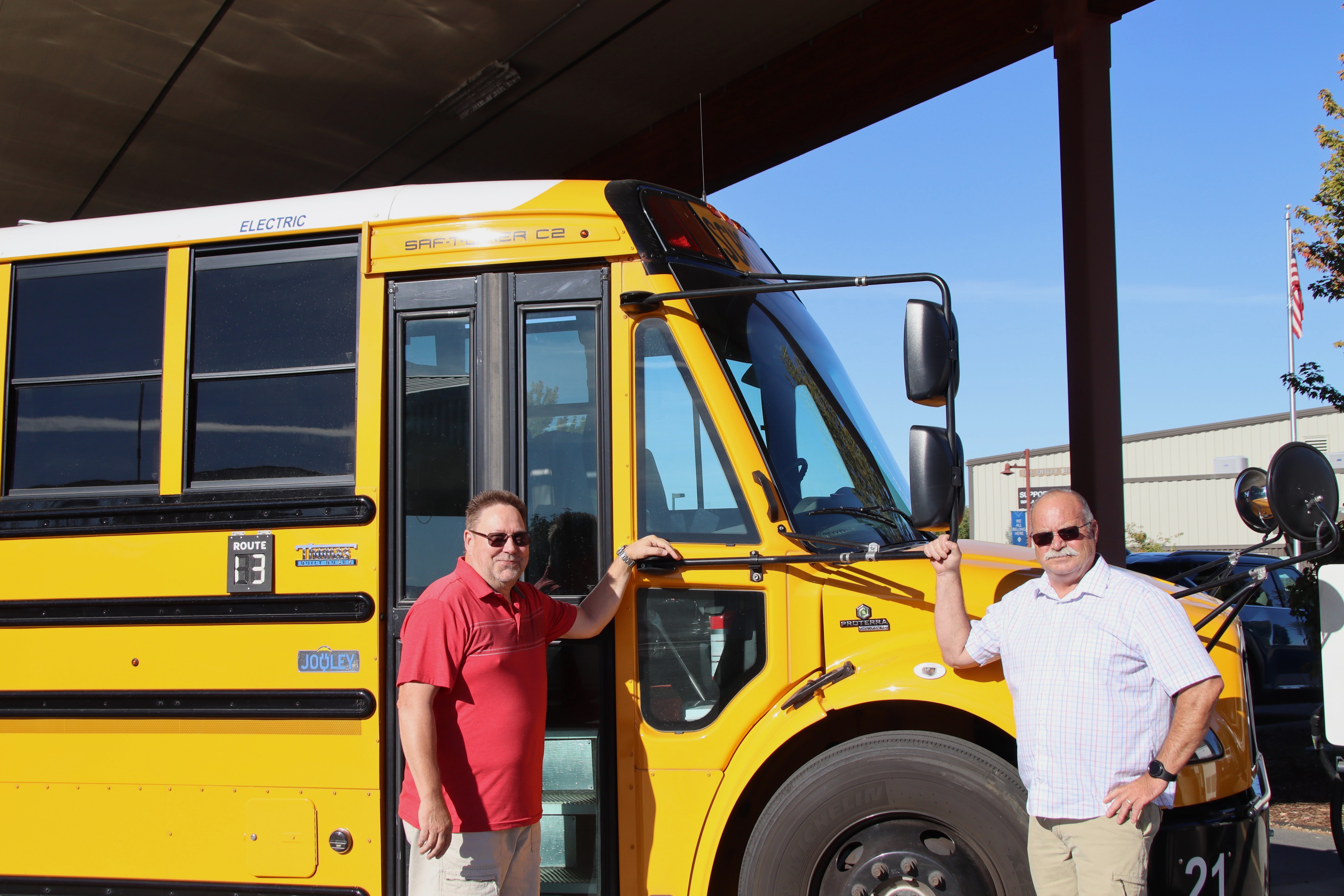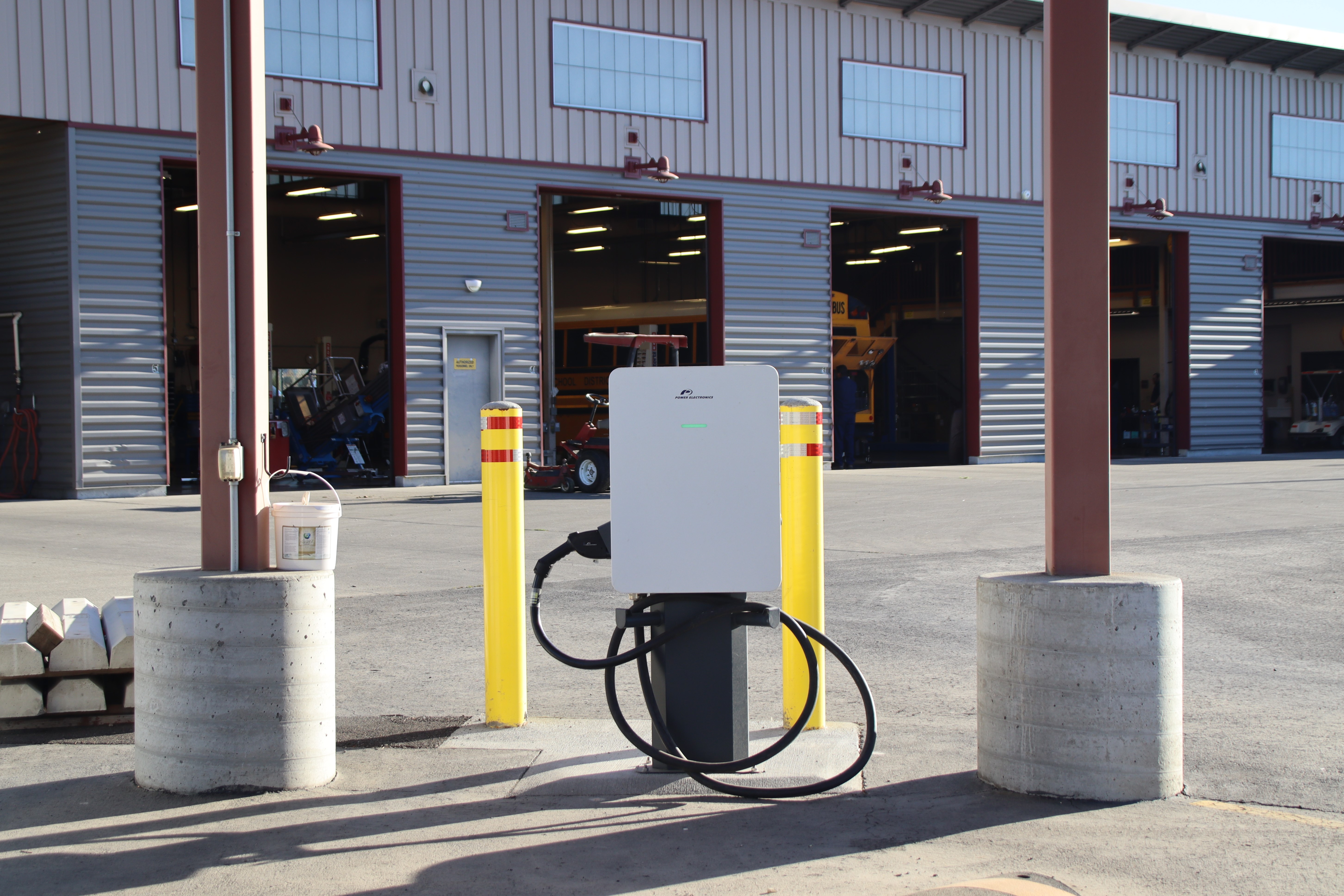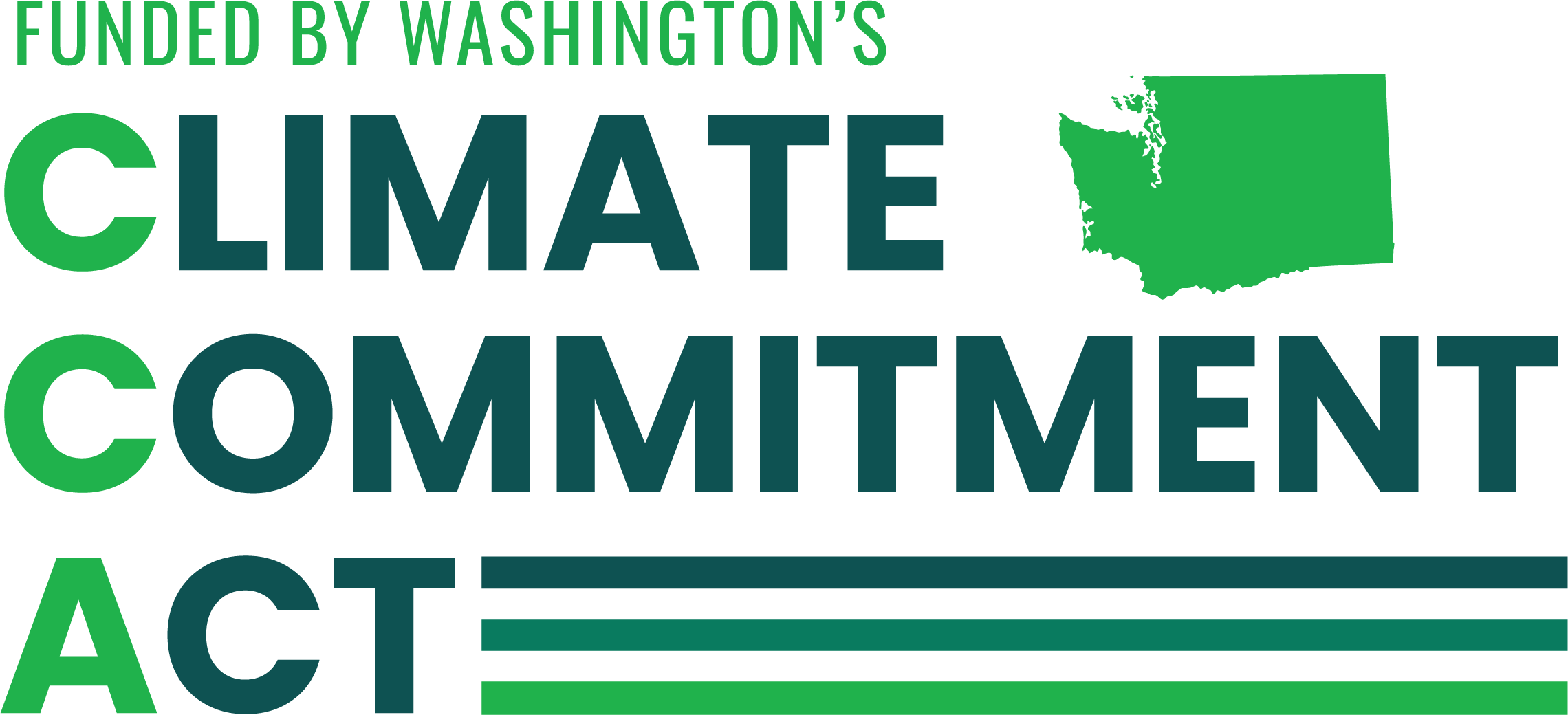
A student arrives at Prospect Point Elementary School on an electric school bus owned by Walla Walla Public Schools.
When John Griffith, director of transportation at Walla Walla Public Schools, heard that district leadership wanted to purchase electric school buses, he wasn’t immediately on board.
“I was like — I don’t think so,” Griffith recalled. “But our superintendent said, ‘John, we have to think about the next generation, the people who are going to follow you.’” Griffith agreed to see how things went with the first three buses and go from there. “And these buses have just performed amazingly,” he said when Ecology visited Walla Walla in September.
Since those three buses rolled out in 2023, Walla Walla Public Schools has received funding for an additional 15 that are scheduled to arrive over the next year, giving it one of the biggest electric school bus fleets in Washington. Funding for their purchase comes from a combination of Ecology and EPA grants — money that made the project possible, even for a smaller school district.
On board with electric
For Walla Walla School District, the transition to electric has been a team effort.
“None of this happens without a team,” said Griffith. “This isn’t about me. This is about how we all came together to make this happen — from the superintendent to the electricity providers to the bus drivers.”
Gene Thompson, transportation coordinator, and John Griffith, director of transportation, stand by one of Walla Walla’s first electric school buses (left to right).
Great leadership also helps. Wade Smith, superintendent of public instruction for Walla Walla Public Schools, has been a driving force in figuring out how to reduce his district’s carbon footprint over the long term. He didn’t need much convincing to see the merits of electric buses.
“With 41 school buses hitting the streets on 31 routes in our district, and with diesel buses getting only 4 to 8 miles per gallon, transitioning the fleet to electric just made the most sense,” Smith said.
And, of course, having broad support helped pave the way. He said everyone leaned into the effort, including school district staff, board members, and students from Walla Walla High School’s Green Club. The most rewarding part for Smith was seeing the smiles on the students’ faces when the electric buses first arrived and knowing the students could see they made a difference.
That difference includes major cost savings — each electric school bus saves the school district about $400 per operational month.
“When you multiply that by 15 buses, that’s $50,000 a year we can spend on other things, or that can help offset the cost of future electric buses if we’re able to secure more grant funding,” said Smith.
The power of grants
Grants from Ecology have been key to Walla Walla’s success.
The cost of an electric bus is currently three times that of a diesel bus. So how could the school district shift to a more environmentally friendly transportation system without breaking their budget? That was the question on everyone’s mind.
“We did our research,” said Griffith. “We knew electric was the direction we wanted to head, and we knew money was out there, that there were grants that could make this happen.”
Indeed, the first three electric school buses were funded with help from a $1.04 million grant from Ecology’s clean diesel grants. The district used a second $1.05 million Ecology grant from the next funding round, as well as a $3.75 million grant from EPA’s Clean School Bus Initiative Grant Program to help purchase the next 15 electric buses. By next July, nearly half of their school bus fleet will be electric.
“The fact that we got these grants for 15 new school buses — that created a buzz within the district.” said Griffith. “It was very exciting.”
Washington’s vision
Right now, a small fraction of school buses across Washington are electric. However, that picture is quickly changing. Every year, the number of electric school buses continues to increase. Washington’s goal is for all new school bus sales to be electric by 2035.
So far, Washington has invested a total $78.3 million to replace about 220 diesel school buses with electric school buses and install associated charging infrastructure. Of those new electric buses, 69 are on the road now.
From 2023 to 2025, the legislature set aside an unprecedented $53.7 million to help school districts transition diesel school buses to zero-emission alternatives — with $20 million coming from Climate Commitment Act (CCA) funds, and another $4 million from CCA funds pending election results in November.
The CCA supports Washington’s climate action efforts by putting cap-and-invest dollars to work reducing climate pollution, creating jobs, and improving public health. Information about the CCA is available at www.climate.wa.gov.
With such a large transition comes an increased need for adequate education and training about how to maintain an electric fleet. That's why some of Ecology’s grants are given to help teach local mechanics how to service and maintain electric buses. Walla Walla Public Schools has received one of these grants. They foresee it helping them as well as the many smaller school districts that are part of their transportation cooperative. These other districts can then rely on Walla Walla’s trained mechanics to service their electric buses, too.
One of four electric charging stations at the Walla Walla Transportation Cooperative, or “bus barn,” where the district’s school buses are housed and repaired.
"We’ve been creative in aligning some of Ecology’s resources with EPA's,” Smith said. “Ecology has really helped us navigate the complexities of the grant process.They've been great to work with."
Learn more about Washington's zero-emission school buses and how they help protect children's health in part 2 of this blog series, to be published on Wednesday, Oct. 30, 2024.


